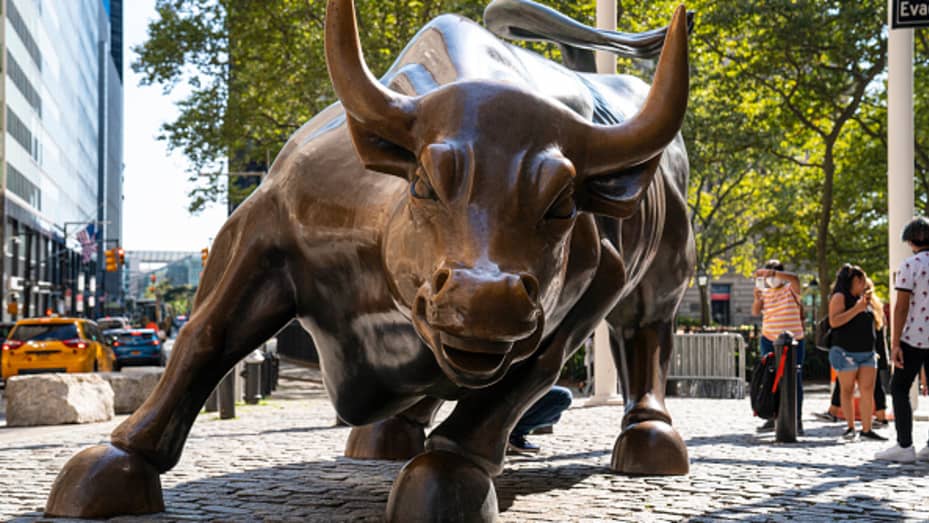
Though JP Morgan thinks stock market gains be may be more modest next year, the firm still sees upside driven by continued earnings growth, one of its analysts said.
“Next year, we expect S&P 500 to reach 5050 on continued robust earnings growth as labor market recovery continues, consumers remain flush with cash, supply chain issues ease, and inventory cycle accelerates off of historic lows,” JPMorgan’s Dubravko Lakos-Bujas wrote in his 2022 Global Equity Outlook released Tuesday. “Most of the equity upside should be realized between now and 1H22 when monetary and fiscal policy tailwinds will be strongest followed by sideways action in 2H22.”
The S&P 500 bounced 1.3% on Monday after tumbling last week from the latest Covid scare. Despite investors’ uncertainty, Lakos-Bujas said the bank’s 2022 outlook is fairly positive.
“While there have been sporadic setbacks with Covid-19 variants (e.g. Delta, Omicron), this needs to be seen in the context of higher natural and vaccine-acquired immunity, significantly lower mortality, and new antiviral treatments,” he said. “With this in mind, the key risk to our outlook is a hawkish shift in central bank policy, especially if post pandemic dislocations persist.”
He added that the bank’s strategists expect central bank policy to remain broadly accommodative, despite Fed tapering of its monthly asset purchases.
The bank’s S&P 500 earnings-per-share estimate for the full year is $240, compared to the consensus estimate of $222.
The S&P 500 is up nearly 24% for the year and closed Monday at 4,655.27.
Lakos-Bujas said inflation will be a recurring theme but that there’s a “compelling” case for inflation rotation versus “broad-based acceleration” in prices.
He suggested investors, particularly with the recent pullback, focus on stocks with a pro-cyclical tilt and reflation-sensitive sectors. That would include energy and financial names instead of staples and utilities, consumer services versus consumer goods, healthcare rather than other defensive sectors and small caps instead of large caps.
He added that tech stocks could face equity multiple pressure from higher rates but should continue to deliver strong fundamentals.
